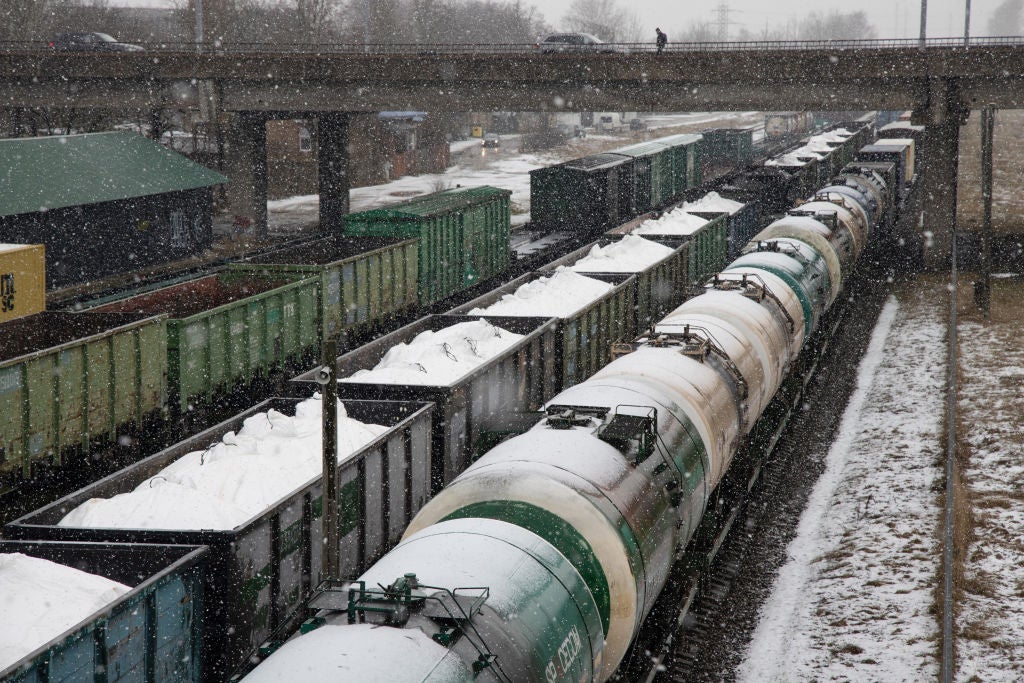
It is a future destined for all countries whose economies remain over-reliant on fossil fuels during the energy transition: plummeting oil and gas revenues, drained state coffers and economic catastrophe. With fossil fuel demand, by most estimates, only just beginning to peak, it is a scenario some way off for most petrostates. However, it may be happening much sooner than expected in Russia as a result of President Vladimir Putin’s decision to invade Ukraine, and the subsequent energy war between the West and Russia.
The year 2022 saw Putin dramatically curb gas exports to Europe, followed by explosions at the Nord Stream 1 and 2 pipelines, while Europe curbed crude oil imports as part of its broader package of targeted economic sanctions.

Discover B2B Marketing That Performs
Combine business intelligence and editorial excellence to reach engaged professionals across 36 leading media platforms.
Unlike when fossil fuel trade declines in a net-zero scenario – where fossil fuels are expected to flood the market, pushing down prices – oil and gas prices have remained high since the start of Russia’s invasion of Ukraine. This meant that for much of last year, Russia was able to maintain significant income from fossil fuels, even as energy exports to Europe plummeted.
Now, though, things are looking bleak. Fossil fuel sales to Europe have continued to slide, and are around four-times lower in mid-March 2023 than they were just prior to the war, according to data compiled by the Centre for Research on Energy and Clean Air (CREA), a think tank. However, this decline is no longer being matched by an increase in oil and gas prices: Urals oil is trading at $50 per barrel (/barrel) in mid-March 2023, down from a peak of $107 in March 2022, while Dutch TTF natural gas futures are trading at around €40 per megawatt-hour ($42.8/MWh), down from a peak of more than €300 last August.
[Keep up with Energy Monitor: Subscribe to our weekly newsletter]
The last seven months have seen consecutive falls in Russian fossil fuel revenue, shows data from CREA. Fossil fuel export revenue is now significantly below pre-war levels, which does not bode well for a country engaged in a costly war that gets more than half its state budget from fossil fuel revenues in normal times.

US Tariffs are shifting - will you react or anticipate?
Don’t let policy changes catch you off guard. Stay proactive with real-time data and expert analysis.
By GlobalDataThis is all set against a background of some 1,000 of the 1,200 top foreign corporate investors in Russia having pulled out of the country, according to monitoring from Yale University, the economic and technological fallout of which is only likely to worsen over time.
Russia still makes a huge amount of money from fossil fuels, and has received more than $300bn in payments for oil, gas and coal since the start of the war, according to CREA. However, analysts maintain that the future looks grim. “Russian oil output and exports are holding up despite sanctions, but bigger losses loom,” says the International Energy Agency’s latest report on Russia's war in Ukraine.
There is no easy replacement for European gas exports – Russia supplied 40% of the continent’s gas before the war – as it would take many years to establish new pipelines elsewhere. China and India have, however, been able to pick up some of the slack with crude oil: China is now a bigger monthly importer of Russian fossil fuels by value than the EU, and India has moved from virtually zero Russian oil imports to being its third-largest buyer after China and the EU.
China and India’s energy payments remain far below what the EU was paying before the war, however, and if the EU lowers its crude oil price cap – which is what countries including Poland are requesting – from $60 a barrel to $25–35, the price CREA recommends in its latest briefing – it would squeeze the Russian Bear yet further.





